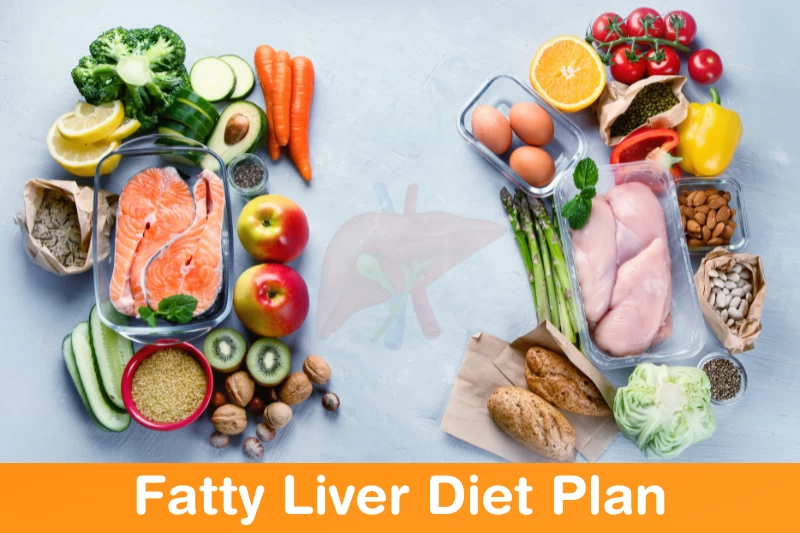
- 23rd March 2023
Table of Contents
The Basics
When it comes to the basics of preventing fatty liver disease, one of the most important actions you can take is to limit your intake of processed foods. These types of products are often high in unhealthy fats, sugars, and other additives that can contribute to a buildup of fat in the liver over time. Instead, focus on consuming whole foods like fruits, vegetables, lean proteins, and healthy fats. Another basic step for avoiding fatty liver disease is maintaining a healthy weight through regular exercise and proper nutrition. Being overweight or obese is a major risk factor for this condition as excess body fat can lead to insulin resistance and inflammation in the liver. By engaging in physical activity on a consistent basis and following a balanced diet that emphasizes nutrient-rich foods, you can help protect your liver from damage caused by excessive fat accumulation. In addition to these lifestyle changes, it's also important to limit alcohol consumption as excessive drinking can cause significant harm to the liver over time. If you do choose to drink alcohol, be sure to do so in moderation and always consult with your healthcare provider about any potential risks based on your individual health history. By making these basic adjustments in your life, you can significantly reduce your risk of developing fatty liver disease while supporting overall health and wellness at the same time.
What is Fatty Liver Disease?
Fatty liver disease is a condition where fat accumulates in the liver, leading to inflammation and scarring. There are two types of fatty liver disease: alcoholic fatty liver disease and nonalcoholic fatty liver disease (NAFLD). The latter is more common and occurs in people who consume little or no alcohol. NAFLD is linked to unhealthy eating habits, particularly consumption of processed foods. Processed foods are high in added sugars, unhealthy fats, refined carbohydrates, and artificial ingredients. These components can increase the risk of developing NAFLD by promoting insulin resistance, which impairs the body's ability to use insulin effectively. Insulin resistance can lead to high levels of glucose and triglycerides in the blood, both of which contribute to the buildup of fat in the liver. Furthermore, processed foods contain high levels of fructose corn syrup (HFCS), which has been associated with increased risk for NAFLD. HFCS can stimulate lipogenesis – a process that leads to excessive accumulation of fat within hepatocytes (liver cells). Additionally, consuming excess amounts of calories from processed foods can lead to overweight or obesity – both significant contributors to developing NAFLD. As such, reducing intake of processed foods is key in preventing and managing this chronic condition.
Processed Foods & Fatty Liver Disease
Fatty liver disease is a condition caused by the accumulation of excess fat in the liver. It can be caused by excessive alcohol consumption or non-alcoholic factors such as obesity, insulin resistance, and a high intake of processed foods. Processed foods are typically high in sugar, salt, and unhealthy fats such as trans fats that can contribute to weight gain and increase the risk of developing fatty liver disease. Studies have shown that people who consume a diet high in processed foods are more likely to develop non-alcoholic fatty liver disease (NAFLD). This is because these types of foods contain little to no nutritional value and often lead to overconsumption due to their addictive properties. In addition, they may also cause inflammation throughout the body, including the liver. To prevent or reverse fatty liver disease, it's important to limit your intake of processed foods and focus on eating whole, nutrient-dense foods instead. This includes plenty of fruits, vegetables, lean protein sources such as fish or chicken breast without skin on it ,and healthy fats like avocados or nuts. By making these dietary changes along with regular exercise and reducing alcohol consumption if necessary you can help improve overall health and reduce the risk of developing fatty liver disease.
Nutrients in Processed Foods
Processed foods have become a staple in the modern diet, but they are often high in calories, sugar, salt and harmful fats while lacking essential nutrients. Many of the nutrients initially present in whole foods are removed during processing, which can have negative implications for our health over time. One example of this is fatty liver disease, which is caused by an accumulation of fat in the liver. Studies suggest that processed foods may contribute to the development and progression of fatty liver disease due to their high sugar content and low nutrient density. Consuming these types of foods contributes to insulin resistance and inflammation- both contributing factors to the development of nonalcoholic fatty liver disease (NAFLD). Furthermore, processed foods contain harmful additives such as emulsifiers that can damage gut bacteria leading to chronic inflammation. In conclusion, consuming processed foods can significantly impact our nutritional status and contribute towards various health conditions including fatty liver disease. By making conscious efforts towards reducing consumption of these products or opting for whole food alternatives more frequently- we may be able to reduce our risk factors for developing related health conditions later on.

Effects of Processed Foods on the Liver
The liver is responsible for filtering out toxins and processing nutrients from the foods we eat. However, a diet high in processed foods can put a strain on the liver's ability to perform these functions. Processed foods contain high amounts of sugar, salt, and unhealthy fats that contribute to inflammation in the body, including the liver. Research has shown that consuming a diet high in processed foods is associated with an increased risk of developing non-alcoholic fatty liver disease (NAFLD). NAFLD occurs when there is an accumulation of fat in the liver cells due to factors other than excessive alcohol consumption. It is estimated that up to 30% of adults in Western countries have NAFLD due to their dietary habits. Consuming too many processed foods can lead to insulin resistance and metabolic dysfunction, both of which are risk factors for NAFLD development. In conclusion, it's important to reduce consumption of processed foods as much as possible to improve liver health and prevent NAFLD. Eating a balanced diet consisting mainly of whole foods such as fruits, vegetables, lean proteins, and healthy fats can help support overall liver function while also providing essential nutrients for overall health and wellbeing.
Ways to Reduce Risk Factors
Fatty liver disease is a condition in which excess fat accumulates in the liver cells. It is commonly associated with obesity and other metabolic disorders, such as type 2 diabetes and high blood pressure. Processed foods are believed to be one of the major contributors to fatty liver disease due to their high levels of sugar, salt, and unhealthy fats. To reduce risk factors for fatty liver disease, it is important to limit or avoid processed foods altogether. Instead, opt for whole foods that are rich in nutrients and fiber. Incorporate fresh fruits and vegetables into your diet, as well as lean proteins like fish and chicken. Another way to reduce risk factors for fatty liver disease is by engaging in regular exercise. Physical activity can help improve insulin sensitivity and promote weight loss, both of which can lower the risk of developing this condition. Aim for at least 30 minutes of moderate-intensity exercise most days of the week. Finally, it’s essential to maintain a healthy weight through a balanced diet and regular exercise routine. Obesity is one of the main risk factors for fatty liver disease so maintaining a healthy weight can greatly reduce your chances of developing this condition. By following these tips, you can take steps towards minimizing your risk factors for fatty liver disease while also improving your overall health and wellbeing.














